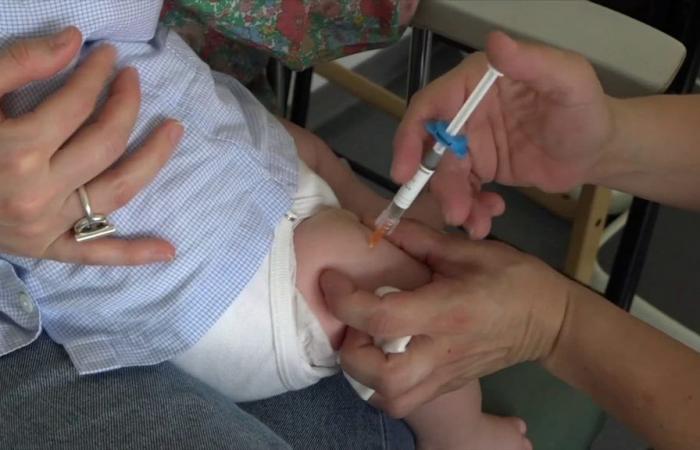Few in number, the cases reported to the authorities responsible for pharmacovigilance mostly concerned a reduced effectiveness of Beyfortus, indicates the National Medicines Safety Agency in a follow-up report this Monday, September 30.
The Medicines Agency (ANSM) has not identified “any particular risk factor” with Beyfortus, a treatment based on antibodies against bronchiolitis in infants offered for a year to parents of newborns, according to its first assessment of monitoring of adverse effects, published Monday.
Between September 11, 2023 and April 30, 2024, 244,495 doses of Beyfortus were delivered to maternity wards and in the city, and 198 pharmacovigilance cases, including 153 deemed “serious”, were declared over this period, the ANSM indicated in a communication on the first preventive immunization campaign 2023/2024.
Only 198 cases out of more than 240,000 doses
“The vast majority (74.7%) of the 198 cases reported in pharmacovigilance report less effectiveness or ineffectiveness of Beyfortus with the appearance of RSV bronchiolitis in children who received the antibody,” said detailed the agency.
“No particular risk factor was identified in these children who contracted bronchiolitis, of varying severity (no death), after administration of Beyfortus,” she added.
The ANSM also mentions, in its pharmacovigilance report, “three cases of sudden death” without an established causal link with Beyfortus. In the first case, “there remains (…) a doubt about a possible link with Beyfortus even if risk factors for sudden death have been identified”, she notes.
In the second, “a direct effect of Beyfortus is very unlikely because the effect occurs 79 days after injection”, in the last, “the chronology is hardly compatible with the imputability of Beyfortus”, which cannot however be excluded.
Nirsevimab, the name of the active molecule, is not a vaccine, even if it is injectable, but a preventive treatment preventing the main virus causing bronchiolitis, the respiratory syncytial virus (RSV), from infecting the organism.
“Cases of respiratory disorders and post-injection systemic effects (such as flu syndrome, decreased appetite, decreased muscle tone), all with a favorable outcome, have been reported,” the ANSM also indicated. She noted that “an isolated case of stroke has also been reported”, but clarified that “at this stage, the causal link between Beyfortus and these effects has not been established”. In total, “21 notable cases” were reported.
Overall, “these results, as well as the studies carried out on the effectiveness, confirm the positive benefit/risk balance of Beyfortus against bronchiolitis”, judged the agency.






